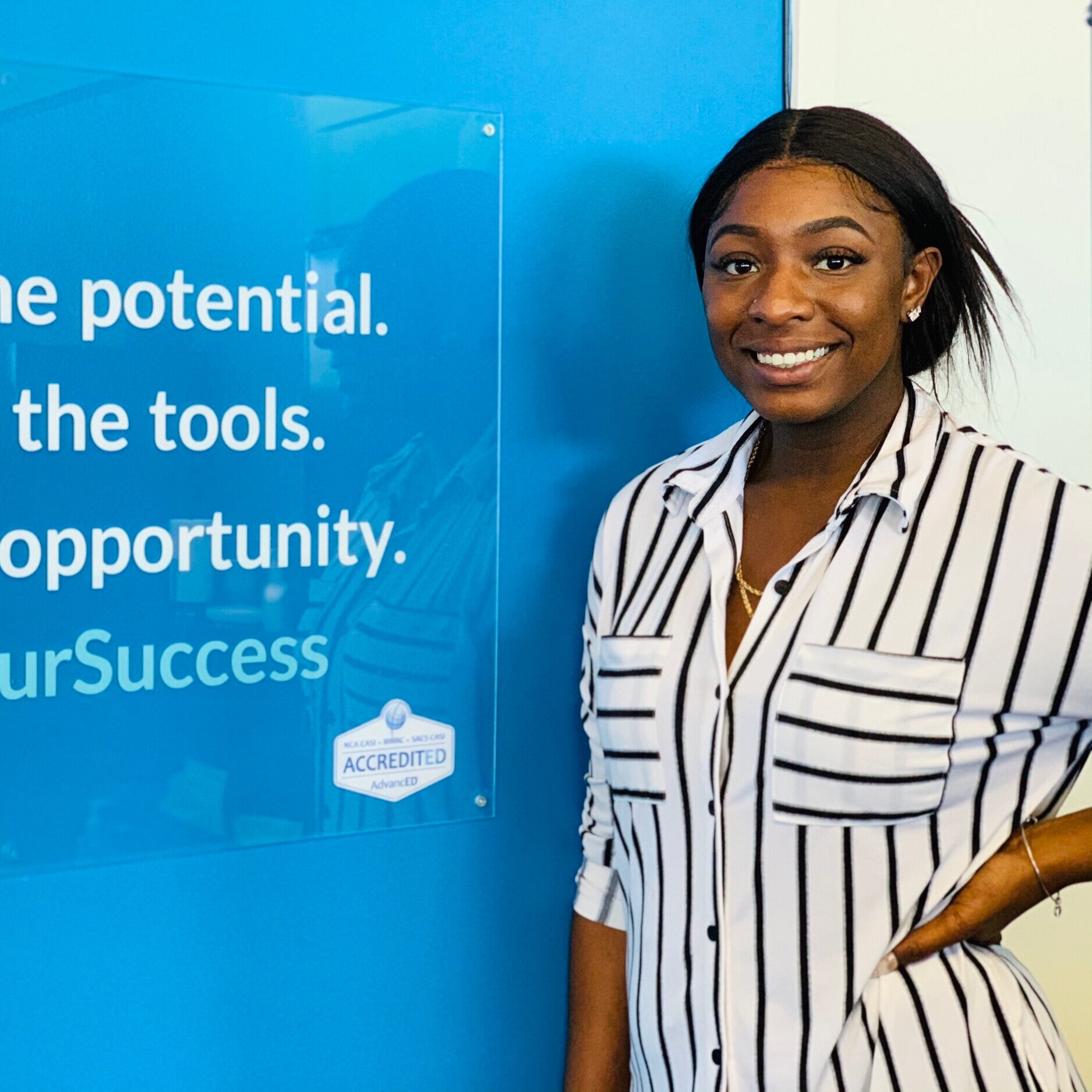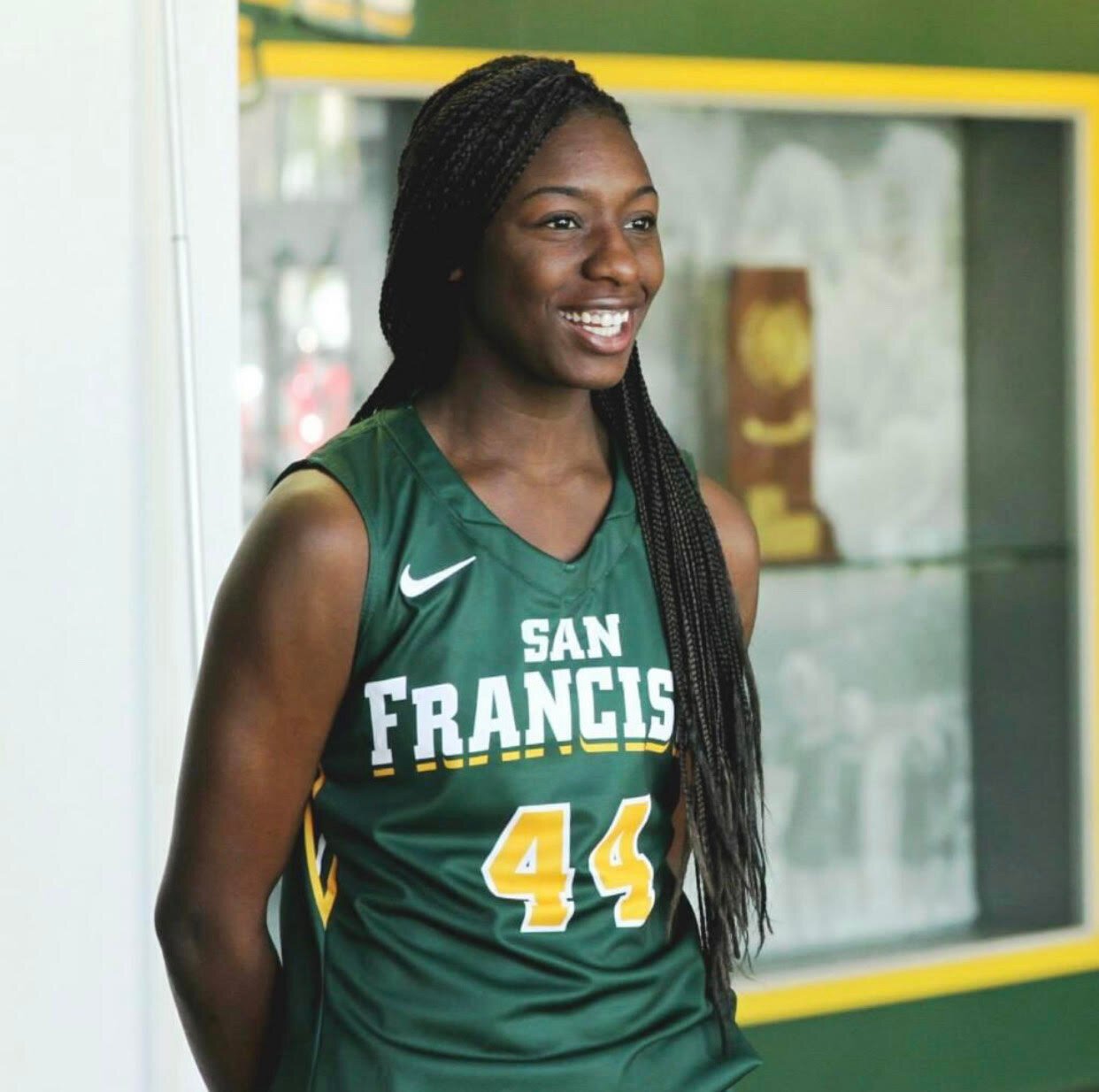CCAA’s Hashima Carothers: It Takes a Team
May 25, 2021 | Jeffrey Good

Growing up in North Las Vegas, Hashima Carothers didn’t have a lot of money. But she had a spark of talent — both intellectual and academic — and people who stood ready to fan it.
“I was lucky to have a village to take me under their wings and guide me,” says Carothers, who joined Clark County Acceleration Academies in October and is now assistant district director overseeing the North campus. “I just had people around me who cared enough to show me the way.”
Now it’s her turn. Carothers began at CCAA during the time when the Covid pandemic had shuttered schools across Nevada and the nation. She spent her days checking in on graduation candidates (GCs) trying to stay engaged in their studies through the long months of working remotely — even as they also often had to juggle other responsibilities.
For instance, one young woman was working long hours at McDonald’s to help support her family and struggling to stay engaged in her schoolwork in her spare time.
“We talked for an hour and I think she just needed to vent,” Carothers recalls. Afterwards, the GC logged back into her coursework and got back on track. “I think her feeling as if, ‘You know what, they do care’ made her say, ‘Let me get back on my stuff.’ ”
Carothers says she was fortunate enough to have grandparents who valued education and urged her to make it a priority, along with a basketball coach who recognized the 5-feet-10 player’s talent and smarts. With his support, she was able to attend a private boarding school in Palo Alto, California, in the shadow of Stanford University.

“Sports can last a long time but it doesn’t last forever. Your education and knowledge is something people can never take from you.”
— CCAA Assistant Director Hashima Carothers
After earning her diploma, she enrolled at the University of San Francisco, where she majored in psychology and played a small forward on the women’s basketball team. At first, she says, her attitude was, “Basketball is life. I’m just here to play sports.”
Three years after she began, three out of her four grandparents died. Her passion for basketball began to dwindle and she reconsidered her path. “Sports can last a long time but it doesn’t last forever,” she says. “Your education and knowledge is something people can never take from you.”
“My junior year, I turned my whole life around.”
At the urging of a counselor, she decided to apply for graduate school after earning her degree in 2017. Taking advantage of the financial aid available to in-state students, she earned her masters’s degree in higher education, with an emphasis in athletics, at the University of Nevada, Las Vegas. After her master’s program, she moved to Italy for before landing a job at the University of San Francisco as the Director of Academic Support for Athletics.
She enjoyed that position, but yearned to work with young people who had faced greater challenges than most of the students at the private Jesuit university. For those students, “for the most part, you made it, you got it, you had people on your team to get you where you need to be.”
Most of the 645 graduation candidates at CCAA have never enjoyed that kind of support. But here, they find a team of educators and advocates ready to help them craft a personalized approach to their studies and then do the work needed to realize their goals.
Sometimes, she says, that means having hard conversations with young learners. “I tell them the real, like, ‘Hey, you’re not doing what you need to do — You realize that you can’t really do anything without a high school diploma.’ ”
Some CCAA students go on to college (including UNLV), others to trade school, the military or jobs where their diploma opens the door to better opportunities and bigger paychecks than high school drop-outs typically command. Says Carothers, “It gives you the foundation of everything you need in the real world.”
She is also helping to build a network of community organizations that can help send struggling students find a better path at CCAA, and to help them build a bridge into their lives beyond high school. And as the pandemic eases and GCs begin to stream back onto campus, she relishes the opportunity to interact with them face-to-face.
“Sometimes kids don’t want to talk, they’re busy, they don’t answer the phone,” she says. But when they come to the Academy, “being able to see them and they see you and realize how much you’re willing to do for them — I think it changes their outlook.”

